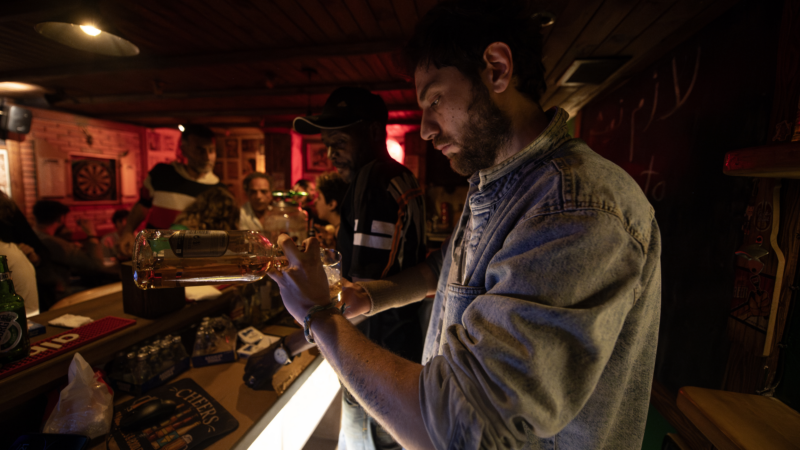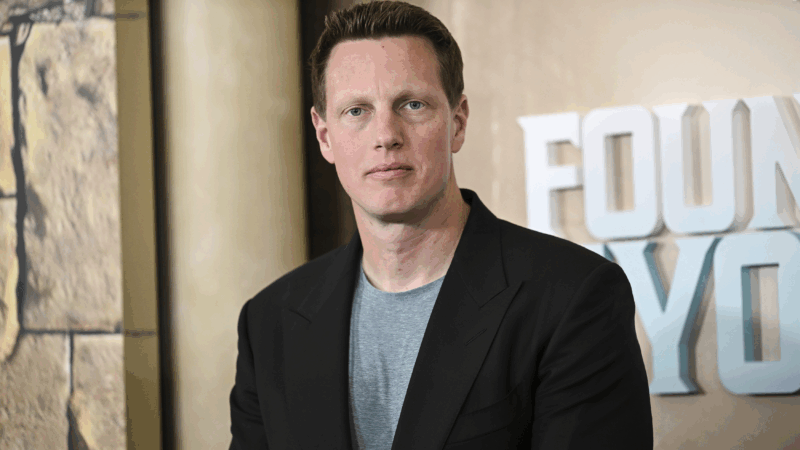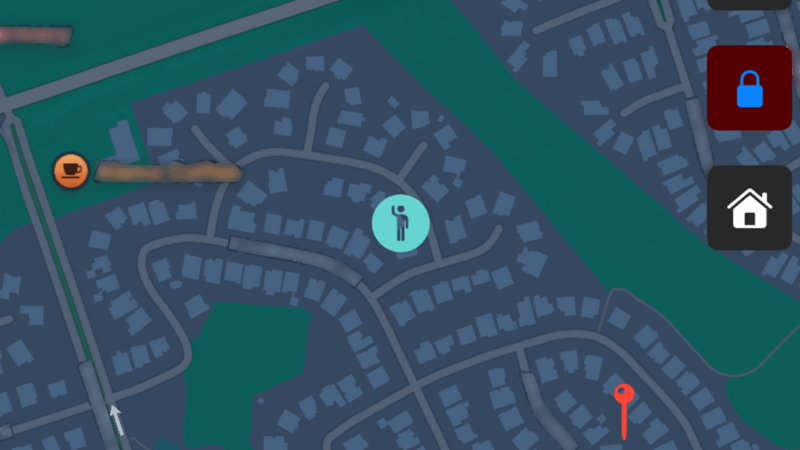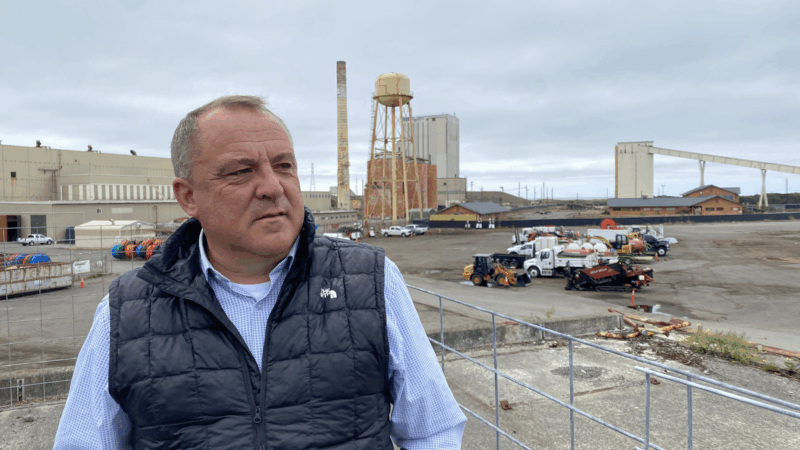What happened when Syria’s conservative new leaders tried to shut 60 Damascus bars
DAMASCUS — Naveen Mahmoud was out running errands when an alarmed neighbor called: The conservative Muslim rebels who ousted Syria’s dictator late last year had arrived to shut down the trendy cocktail bar Mahmoud runs in the Old City of Damascus.
Two government agents placed an iron rod across the front door of Mahmoud’s bar, called Cosette, and sealed it shut Thursday with red wax — a method that goes back to antiquity.
“We were very concerned when they first took power [in December], but they came and said, ‘Everything will be the same [as under deposed President Bashar al-Assad], no worries,’ ” says Mahmoud, 42, who worked in Cyprus and Turkey before returning to her native Syria to open Cosette five years ago. “But all of a sudden, they did this! They didn’t give us any reason, or any warning.”
Hers was one of 60 Damascus bars that were either forcibly shut this past week, or received government notices that they soon would be, for serving alcohol without a license, Mahmoud and three other people who work in Syria’s alcohol industry told NPR.
But after a social media outcry, and appeals to the Damascus mayor, all 60 closures were lifted — after less than a day.
It’s an example of how Syria’s new leaders — who once had ties to al-Qaida — are still finding their way, wrestling with how to mesh their conservative Islamic values with the secular lifestyle of many of their fellow citizens and urbanites in particular.
Partying with former Islamist fighters
The night after Assad fled, Kifah Zainie threw a party at the popular Damascus watering hole he co-owns and runs, called Sugar Man. Cocktails were flowing. It felt like a carnival, he recalls.
But Zainie, 34, who wears a stonewashed denim jacket with a flipped collar, had a niggling worry: Syria’s new leaders had banned alcohol in Idlib, northwest Syria, where they first governed in 2017. And Zainie makes a living from serving alcohol.
Ten days later, around mid-December, two bearded guys with guns knocked on his door. They asked if he had an alcohol license. Zainie does not.
To get one, a 1952 law stipulates you have to be located more than 100 meters (yards) from a school or religious site — which rules out most locations in central Damascus. Authorities haven’t issued new licenses for his area since 1960 anyway, Zainie says.
Under the Assad regime, while alcohol consumption was legal, most bars were unlicensed. Owners would pay a fine for that — about $2, every few months, Zainie recalls — and authorities left them alone.
Under the new regime, he worries it might not be as easy. On a lark, he invited the bearded guys into his bar that night — provided they put down their guns. (Zainie wasn’t sure if they were official government agents, or militiamen close to the regime.)
“They said OK yes, and came in, and — I have video — they danced!” Zainie recalls, laughing. “It was very strange, just like performance art, like bin Laden danced with us!”
He showed NPR video on his phone of two bearded men in camouflage, dancing and smiling, surrounded by secular hipsters.
“At that time, we felt like we could connect with these people, if we just shake hands,” Zainie says. “They are Syrian!”
Strange bedfellows in the new Syria
With international sanctions still in place, many multinational companies can’t do business in Syria. So it’s difficult for Syrian vendors to import foreign brands.
A secular, tattooed alcohol wholesaler named Abboudi says one way he gets around sanctions is by buying liquor in bulk from Islamist fighters in the mountains between Lebanon and Syria. They have a warehouse, he says, full of confiscated stuff.
“We pay $2,000 for one hour’s opening, [during which time] we take whatever we can! One hundred boxes, 200 boxes, 500 — you have one hour!” he explains.
Abboudi didn’t want NPR to publish his surname, because what he’s describing is illegal.
He calls his suppliers Daesh — the Arabic name for ISIS — but acknowledges he doesn’t know their exact affiliation. He doesn’t visit them alone, and makes sure he’s carrying a gun.
Pushback from drinkers
Mahmoud says she tried to meet Syria’s conservative leaders halfway: She voluntarily closed Cosette during fasting hours in the holy month of Ramadan, and put curtains on the windows so that people can’t see in from outside.
When they shut her down, she says it felt like betrayal — of her business, and also of the coexistence that’s made Damascus famous for raucous nightlife, even in wartime.
“People here, they respect each other. They respect each other’s religions, traditions,” she says.
She points around the room at her staff: Two are Christian, a few are Muslim. She’s from the Syrian capital’s Circassian minority, an ethnic group with roots in the Caucasus.
NPR asked Syria’s Interior Ministry and the Damascus governor’s office about the bar closures, and why they were quickly reversed. The Interior Ministry said it was unaware of steps taken by local police. The governor’s office confirmed the reversal but would not provide further details.
Mahmoud believes this is a lesson for them.
“What worked in Idlib won’t work in Damascus,” she says.
NPR producer Jawad Rizkallah contributed to this story from Damascus.
Not so fast, Netflix. Paramount launches hostile bid for Warner Bros. Discovery
Paramount has launched a hostile bid for the company that's home to Casablanca, Batman and CNN. Just Friday, Netflix and Warner Brothers executives were celebrating a deal they had struck.
China’s trade surplus hits $1 trillion for first time ever
China's exports to the U.S. have dropped sharply this year, in the face of President Trump's tariffs — but the country is still finding plenty of customers elsewhere around the world.
ICEBlock app sues Trump administration for censorship and ‘unlawful threats’
The app lets people anonymously share the locations of immigration agents but Apple removed it from its app store under pressure from the Trump administration. Now, the app's developer is suing.
Here are the 2026 Golden Globe nominations
Marlon Wayans and Skye P. Marshall presented the nominees for the 83rd Golden Globes this morning. The awards ceremony will be held on Jan. 11, hosted by Nikki Glaser.
After Texas ruling, Trump and Republicans head to 2026 with a redistricting edge
Trump has prompted a redistricting race as he tries to maintain Republican control of the House in the 2026 elections. Democrats have fewer options to counter, as the battle heads into next year.
How China, not the U.S., became the main climate solution story in 2025
The U.S. has become a "side character" in the global story of renewable energy, experts say. China dominates the sector, with positive implications for the climate and their economy.






